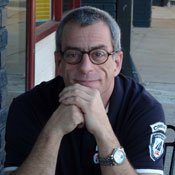Concert pianist, composer and activist Robin Webb, 52, has been living with HIV and AIDS for more than two decades. Diagnosed in 1988 as HIV positive, his doctor told him in 1990 that the virus had progressed. "You have AIDS," he told Webb. "... You need to put your house in order."
Facing death tends to quickly put a person's priorities in order. Through his own gradual acceptance of the disease and the advent of new therapies, Webb put his passion for music in the forefront of his life. He also became passionately committed to advocating for GLBT rights, and for the rights of those infected with the AIDS virus.
Tonight, the Mississippi State Department of Health and Webb's Jackson-based networking group, A Brave New Day, are hosting delegates from the White House Office of National AIDS Policy during a town-hall community meeting at the Jackson Medical Mall. It is one of 14 similar meetings held across the country to aid in developing a national HIV/AID strategy.
During the presidential campaigns, Webb and other activists asked the candidates to take on the issue of AIDS in America. Sen. John McCain declined to make fighting the epidemic part of his campaign platform, Webb said. Then-Sen. Barack Obama embraced the issue, and tonight's town-hall meeting is part of the administration's commitment to implementing policy changes toward the illness.
More than 30 years since HIV/AIDS became an issue, HIV infections continue their relentless rise. "We're not seeing any declines," Webb said. "We're still seeing the same number of infections every year: 56,000." The South has seen a disproportionate increase in cases, with nearly half of new infections in the region. In Mississippi today, more than 9,000 people are infected, yet fewer than half are getting any treatment, even the minimal care provided by nurse practitioners. Most at risk are African Americans, Webb said, especially men, with 70 percent of Mississippi's new cases in black men.
Health-care disparities in the rural South, particularly for people of color, are a big issue for AIDS advocates. States that are primarily rural, including Mississippi, have seen a marked inability to secure federal funding to counter the spread of the HIV/AIDS, Webb said. The complicated funding formula in the Ryan White Care Act, passed in 1990, heavily favors large metropolitan areas like New Orleans, Chicago and New York City.
"They probably get five to 10 times more funding (per capita) than rural areas," Webb said, a problem exacerbated by a shortage of doctors. "Life with HIV in Mississippi ... is profoundly different" than in big cities in terms of available medical, mental and social support systems, he added.
"Here, there's no support group, no case management. There's no daily reinforcement," Webb told the Associated Press. In contrast, when he lived in New York City, he not only got medical treatment from HIV specialists, he had access to mental health counseling and nutritional programs.
The HIV/AIDS town-hall meeting runs from 6 p.m. to 8 p.m. tonight, Nov. 16, at the Jackson Medical Mall (350 W. Woodrow Wilson Ave.). Most of the time is dedicated to open discussion. To register, sign up at http://www.cmpinc.net/ONAP. You can also register at the door.



Comments
Use the comment form below to begin a discussion about this content.
comments powered by Disqus